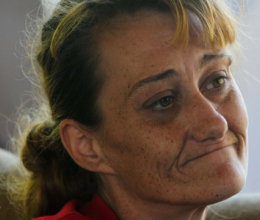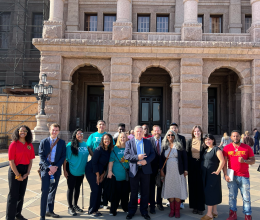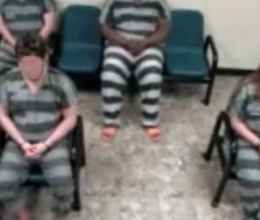
Two short months ago, our city suffered one of the most devastating natural disasters in its 180-year history. But the calamities Hurricane Harvey rained down upon us are the same as those homeless Houstonians face every single day. And they are no less deserving of our empathy, creativity and resources than are the victims of Harvey's floods.
Everyone agrees that the conditions in homeless encampments are no way for anyone to live. Mayor Sylvester Turner, his predecessor Annise Parker and the Houston City Council have taken compassionate and effective steps toward housing people in encampments. In fact, we have become national leaders in ending homelessness, bringing our veteran homelessness rate to a functional zero and reducing the overall homeless population by half.
Even so, our shelters for the homeless are full beyond capacity. People are living in encampments because they have nowhere else to go. Instead of treating encampment residents with dignity, Houston has made it a crime to live in tents, which is neither compassionate nor effective. This law does not address the root causes of homelessness or reduce it, but rather displaces homeless Houstonians by discouraging them from remaining in any one place for too long.
Criminalizing tents effectively criminalizes homelessness itself - which is unconstitutional.
Criminalizing tents effectively criminalizes homelessness itself - which is unconstitutional. So encampment residents sued. And last August, they won an injunction in federal court that prevents law enforcement from citing or arresting anyone just for using a tent.
Since that injunction went into effect, Mayor Turner has used every sensationalized press conference and Facebook Live appearance to hold the American Civil Liberties Union and our clients responsible for the unsanitary conditions and crimes in the midtown and downtown encampments, while giving short shrift to other, equally serious crimes where convenient scapegoats are in shorter supply. In his court testimony and public remarks, the mayor suggests that since he is no longer permitted to arrest his way out of the problem, his hands are tied.
Of course, any crimes committed in the encampments should be investigated, and those committing them should be held responsible. Nevertheless, neither our clients nor the tents they live in are the source or the cause of violent crime on Houston's city streets.
The unsanitary conditions are not created by the tents, but because Houston's homeless have nowhere else to go. Even the mayor has conceded on numerous occasions that our homeless would not run afoul of the ordinances for merely sleeping on public property, but rather for doing so in a tent. Following that logic, it appears the City approves of the homeless living on our streets, so long as they don't get too comfortable.
Public health problems require public health solutions, not criminalization. To the mayor's question as to what the ACLU is trying to achieve in its defense of Houston's homeless, we answer: The City has not even begun to exhaust potential remedies for this crisis.
Other cities have developed innovative solutions for the very problem Houston is facing today. San Francisco's Navigation Center, for example, permits mixed-gender sleeping arrangements for homeless couples, does not prohibit entry of people with pets, provides storage for belongings and does not require sobriety or participation in religious services of its clients.
There is no particular mystery to ending homelessness. Housing ends homelessness and, thus far, the City of Houston has provided no new facilities to address the problem.
There is no particular mystery to ending homelessness. Housing ends homelessness and, thus far, the City of Houston has provided no new facilities to address the problem.
As the mayor said when he announced the ordinance, the City cannot tell its homeless that they cannot be in a particular place if it cannot provide them with somewhere else to go. To which we would add, nor can it punish people for sheltering themselves on the street in the meantime.
Surely a city with the demonstrated mettle to weather a disaster as destructive as Harvey can tackle its homelessness problem without having to create a new category of criminal whose only crime is wanting to shelter where they can; to create a new category of criminal who has no place in the Harris County jail; to create a new category of criminal by initiating cruel and unconstitutional measures like arrests and incarceration.
No one, including the ACLU and its clients, wants people to live in encampments or in the street. The only question is how we go about solving that problem collectively, effectively and humanely.
If we respond to this crisis with even a fraction of the energy, urgency and compassion we brought to Harvey's victims, we could find solutions that protect both the rights and dignity of the poorest and most vulnerable among us.
This article originally appeared on the Houston Chronicle website.







